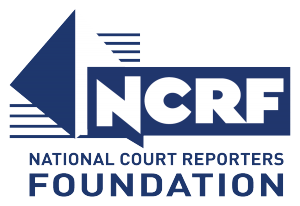
Oxford Dictionaries came out with their word of the year in mid-November, choosing post-truth for 2016. Oxford Dictionaries has noticed “an expansion in the meaning of the prefix post- that has become increasingly prominent in recent years” with a meaning that has shifted to “belonging to a time in which the specified concept has become unimportant or irrelevant” (early examples are post-war, post-national, and post-racial). Oxford Dictionaries cites a 1992 essay by the late Serbian-American playwright Steve Tesich in The Nation magazine as the first use of post-truth. Oxford Dictionaries, which is a British publication, saw a spike for post-truth this year “in the context of the EU referendum in the United Kingdom and the presidential election in the United States.” Other contenders for Oxford Dictionaries’ word of the year include glass cliff, chatbot, adulting, woke, and Latinx.
Dictionary.com chose xenophobia as their word of the year. Xenophobia comes from two Greek roots — xénos or “stranger,” and phóbos, which means “fear, panic.” Dictionary.com cited similar current events that influenced the spike in xenophobia lookups: the Brexit vote, Syria’s refugee crisis, the U.S. presidential election, and police shootings. Dictionary.com did not share any other finalists for the word of the year.
Merriam-Webster announced their word of the year at the end of December, choosing surreal. According to Merriam-Webster, surreal is “a relatively new word in English, and derives from surrealism, the artistic movement of the early 1900s that attempted to depict the unconscious mind in dreamlike ways as ‘above’ or ‘beyond’ reality. Surreal itself dates to the 1930s, and was first defined in a Merriam-Webster dictionary in 1967.” They saw three distinct spikes in lookups for surreal this year: following the Brussels terror attack in March, the coup attempt in Turkey and the terrorist attack in Nice in July, and the U.S. election in November. Other finalists for Merriam-Webster’s word of the year include revenant, in omnia paratus, bigly, irregardless, and feckless.
In a move that is uncharacteristically interactive of dictionaries but has become typical behavior for Merriam-Webster, at the end of November the dictionary tweeted out “‘Fascism’ is still our #1 lookup. # of lookups = how we choose our Word of the Year. There’s still time to look something else up.” In response, users began looking up other words, including puppies and flummadiddle, to influence the final word of the year. Merriam-Webster then replied in an article, “We like puppies … But they will not be our Word of the Year, and neither will flummadiddle.” The article goes on to explain how the dictionary chooses the word of the year. The article also includes adorable photos of puppies.
Politics didn’t just influence English; Austria chose Bundespraesidentenstichwahlwiederholungsverschiebung, or “postponement of the repeat of the runoff of the presidential election,” as their word of the year because of “the record time it took to elect Austria’s president.” The Research Unit for Austrian German at the University of Graz and the Austria Press Agency ran a poll to determine the word of the year.
Find Oxford Dictionaries’ 2015 word of the year.
Find Merriam-Webster’s 2015 word of the year.

